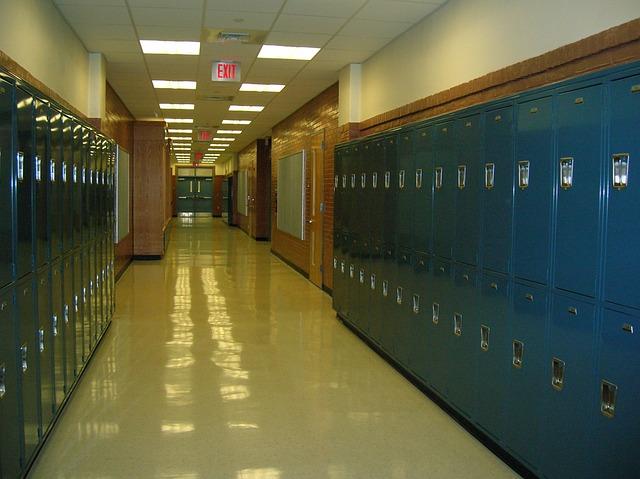How Long Does Soccer Season Last in High School? Teen Soccer Duration
For many high school athletes, soccer season is a special time filled with competition, camaraderie, and personal growth. Understanding the duration of the soccer season can help players and their families prepare for the busy schedule ahead. In this article, we will explore how long soccer season lasts in high school, providing insight and guidance for teen soccer players and fans alike.
Contents
- 1 Understanding the Timeline of High School Soccer Season
- 2 Factors Influencing the Duration of Teen Soccer Season
- 3 Key Dates and Milestones in High School Soccer Schedule
- 4 Insights into Pre-Season, Regular Season and Playoffs in Teen Soccer
- 5 Pre-Season
- 6 Regular Season
- 7 Playoffs
- 8 The Importance of Physical and Mental Preparation for High School Soccer Season
- 9 Balancing Academic Responsibilities with Commitments to High School Soccer
- 10 Tips for Maximizing Performance and Avoiding Burnout during Teen Soccer Season
- 11 Strategies for Setting and Achieving Goals in High School Soccer
- 12 Recommendations for Staying Motivated and Focused Throughout the Soccer Season
- 13 Wrapping Up
Understanding the Timeline of High School Soccer Season
The high school soccer season typically lasts from late summer to early winter, spanning several months of intense competition and team bonding. Understanding the timeline of the soccer season can help players, coaches, and parents prepare for the physical and mental demands of the sport.
-
Pre-Season: The pre-season usually begins in late summer, where players participate in tryouts, conditioning drills, and team-building exercises. This period is crucial for coaches to assess player skills and team dynamics before the official season kicks off.
-
Regular Season: Once the pre-season is completed, the regular season begins, usually in early fall. Teams compete against other schools in their conference or district, with games scheduled throughout the week. Practices become more focused on game strategy and skill development during this time.
-
Playoffs: As the regular season comes to a close, teams that have performed well may advance to the playoffs. The playoff period can last a few weeks, with teams competing in single-elimination or tournament-style formats to determine the ultimate champion. This is often the most exciting and intense part of the high school soccer season.
-
Off-Season: After the playoffs, the off-season begins, allowing players to rest, recover, and prepare for the next season. Many players continue to train and play in club leagues during this time to stay in shape and hone their skills for the following year.
Factors Influencing the Duration of Teen Soccer Season
Factors influencing the duration of the teen soccer season can vary depending on various elements that impact the scheduling and organization of high school soccer programs. Here are some key factors to consider when determining how long the soccer season lasts for teenagers:
-
School calendar: The academic calendar plays a significant role in shaping the length of the soccer season. School holidays, breaks, and exam periods can influence the duration of the season and the number of games played.
-
League regulations: Different high school leagues may have specific rules and regulations regarding the duration of the soccer season. These guidelines can dictate the start and end dates of the season, as well as the number of matches teams are allowed to play.
-
Weather conditions: Weather conditions can also impact the duration of the teen soccer season. Inclement weather, such as heavy rain or snow, can lead to game cancellations or rescheduling, which may extend the length of the season.
- Playoff structure: The playoff structure of the high school soccer season can also affect its duration. Depending on the format of the playoffs, the season may be extended to accommodate knockout rounds or championship matches.
Overall, the duration of the teen soccer season is influenced by a combination of factors, including school calendars, league regulations, weather conditions, and playoff structures. By considering these elements, coaches, players, and parents can better understand how long the soccer season will last for high school teams.
Key Dates and Milestones in High School Soccer Schedule
In high school, the soccer season typically lasts for several months, beginning in the late summer or early fall and running through the late fall or early winter. The specific start and end dates can vary depending on the school and the region, but there are some key dates and milestones that are common across most high school soccer schedules. Here are some of the most important dates to keep in mind:
- Pre-Season Tryouts: Before the official start of the season, most high school soccer teams hold tryouts to determine which players will make the varsity and junior varsity squads.
- First Game: The first game of the season is always an exciting milestone for players, coaches, and fans alike. It sets the tone for the rest of the season and can be a great opportunity to showcase the team’s skills.
- League Play: Once the season is underway, teams will compete in a series of league matches against other schools in their conference. These games are crucial for determining playoff seeding and can be highly competitive.
- Playoffs: Towards the end of the season, teams that have performed well in league play will have the opportunity to compete in playoff games with the goal of winning a championship title.
Insights into Pre-Season, Regular Season and Playoffs in Teen Soccer
As a high school soccer player, you may be wondering how long the soccer season lasts and what it entails. The soccer season typically includes three main phases: pre-season, regular season, and playoffs.
Pre-Season
Pre-season is a crucial time for players and teams to prepare physically and mentally for the upcoming season. It usually lasts for a few weeks before the regular season begins. During this time, players focus on conditioning, skill development, and team bonding.
Regular Season
The regular season is where the bulk of the competition takes place. Teams compete against each other in a series of games to determine their standings in the league. This phase typically lasts for a couple of months and consists of several games per week.
Playoffs
Once the regular season concludes, teams that have performed well advance to the playoffs. This knockout stage is where the best teams compete for the championship title. The playoffs usually last for a few weeks, culminating in the final match where the ultimate winner is crowned.
The Importance of Physical and Mental Preparation for High School Soccer Season
In order to excel during high school soccer season, both physical and mental preparation are essential. Physical conditioning is crucial to ensure that players have the strength, endurance, and agility required to perform at their best on the field. This includes regular workouts, cardio exercises, and proper nutrition to fuel their bodies for the demands of the sport.
Additionally, mental preparation plays a key role in the success of high school soccer players. Building confidence, focus, and resilience can help athletes overcome challenges and stay motivated throughout the long and demanding season. Strategies such as visualization, goal-setting, and mindfulness techniques can all contribute to a strong mental game.
By prioritizing both physical and mental preparation, high school soccer players can increase their chances of success on the field. Developing a comprehensive training plan that addresses both aspects of preparation will help players be well-rounded and ready to face the competition that comes with the soccer season.
Balancing Academic Responsibilities with Commitments to High School Soccer
Managing academic responsibilities alongside commitments to high school soccer can be a challenging task for many student-athletes. Balancing practices, games, and schoolwork requires effective time management and dedication. Understanding how long the soccer season lasts in high school can help players plan their schedules accordingly.
In most high schools, the soccer season typically lasts for about 2-3 months, depending on the region and league. This timeframe includes both regular season games and playoffs, culminating in championship matches for qualifying teams. During this period, student-athletes can expect to have multiple practices and games per week, in addition to any school-related obligations.
It is important for student-athletes to prioritize their time and establish a schedule that allows them to excel both academically and athletically. Here are some tips for :
- Develop a study schedule: Allocate specific times for studying and completing assignments to ensure that schoolwork does not fall behind.
- Communicate with teachers and coaches: Inform your teachers and coaches about your commitments to soccer, so they can provide support and assistance when needed.
- Stay organized: Use a planner or digital calendar to keep track of important deadlines, practices, and games.
- Take care of yourself: Make sure to prioritize rest, nutrition, and hydration to maintain your physical and mental well-being throughout the season.
| Month | Activity |
|---|---|
| August | Pre-season training and tryouts |
| September – October | Regular season games |
| November | Playoffs and championship matches |
Tips for Maximizing Performance and Avoiding Burnout during Teen Soccer Season
During high school, soccer season typically lasts for a few months, depending on the league and the level of competition. It usually begins in the late summer or early fall and can run through the end of the school year. This can be an intense period for teen soccer players, as they balance schoolwork, practice, and games.
To maximize performance and avoid burnout during the season, it’s important for teen soccer players to prioritize their physical and mental well-being. Here are some tips to help players stay at the top of their game:
– **Maintain a balanced diet:** Fueling your body with nutritious foods is essential for energy and recovery. Make sure to eat a well-rounded diet with plenty of fruits, vegetables, lean proteins, and whole grains.
– **Stay hydrated:** Proper hydration is key for peak performance. Drink plenty of water before, during, and after practices and games.
– **Get enough rest:** Adequate sleep is crucial for recovery and overall health. Aim for 8-10 hours of sleep per night to allow your body to recharge.
– **Take breaks when needed:** Listen to your body and don’t push yourself too hard. If you’re feeling tired or sore, it’s okay to take a rest day or participate in lighter activities.
Strategies for Setting and Achieving Goals in High School Soccer
Setting and achieving goals in high school soccer is crucial for both personal development and team success. Here are some effective strategies to help you reach your soccer goals:
- Set Specific Goals: Clearly define what you want to achieve in terms of skill improvement, playing time, or team success.
- Create a Plan: Break down your goals into smaller, manageable steps to stay on track and measure your progress.
- Stay Motivated: Keep yourself motivated by focusing on the end result, visualizing success, and celebrating small victories along the way.
- Seek Feedback: Be open to feedback from coaches, teammates, and yourself to identify areas for improvement and adjust your goals accordingly.
By following these strategies and staying dedicated to your goals, you can elevate your performance on the soccer field and achieve success both individually and as a team.
Recommendations for Staying Motivated and Focused Throughout the Soccer Season
To ensure you stay motivated and focused throughout the soccer season, it’s important to establish a routine and stick to it. Set specific goals for yourself both on and off the field, whether it’s improving your shooting accuracy or maintaining a healthy diet. Prioritize your time and make sure to balance schoolwork, training, and rest effectively.
Stay connected with your teammates and coaches for support and encouragement. Building strong relationships within your team can keep you motivated during challenging times and help you stay focused on your goals. Engage in team-building activities and communicate openly with your peers to foster a positive and supportive environment.
Incorporate variety into your training regimen to keep things interesting and prevent burnout. Mix up your workouts with different drills, exercises, and techniques to continue challenging yourself and improving your skills. Stay disciplined and maintain a positive mindset, reminding yourself of the reasons why you love the game and the goals you want to achieve.
Remember to take care of your physical and mental well-being throughout the soccer season. Stay hydrated, eat nutritious foods, and get plenty of rest to ensure your body is in peak condition for games and practices. Practice mindfulness and relaxation techniques to manage stress and stay focused on your performance. With dedication, perseverance, and the right mindset, you can successfully navigate the high school soccer season from start to finish.
Wrapping Up
In conclusion, the duration of the high school soccer season can vary depending on the region and the level of competition. Generally, most high school soccer seasons last around 10-14 weeks, with games typically played throughout the fall season. Understanding the length of the soccer season can help teen players and their families better plan and prepare for the exciting journey ahead. Whether you’re a seasoned player or just starting out, knowing when soccer season starts and ends can help you make the most of your high school soccer experience. So lace up those cleats, hit the field, and enjoy the thrill of high school soccer season!















